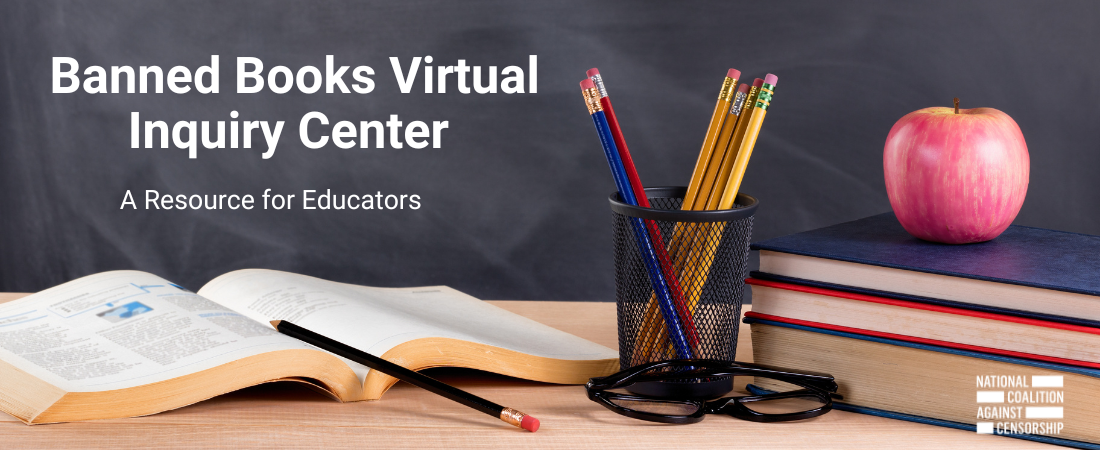NEW YORK – As a new school year begins and Banned Books Week, Sept. 18 – 24, 2022, is on the horizon, polarizing politics and a surge in book banning attempts continue to create a challenging landscape for our nation’s educators. In response, the National Coalition Against Censorship (NCAC) has created a virtual Banned Books Week Inquiry Center that provides lesson plans to empower educators to navigate difficult discussions on censorship and challenged books with middle and high school students.
Students and educators will have free access to new tools to navigate and investigate questions on censorship. Resources will help students develop the critical thinking skills needed to consider “how to think” instead of “what to think.” This user-friendly resource, developed by the NCAC’s Youth Free Expression Program, provides teachers and librarians with virtual lesson plans that follow an inquiry-based learning process.
“Inquiry Center lesson plans allow students to explore and analyze research questions,” said Christopher Finan, executive director, National Coalition Against Censorship. “This experiential type of learning intends to pique students’ curiosity and provides a variety of tools to help develop their own opinions about book bans and how censorship may affect them, their community, and American democracy.”
According to the American Library Association’s (ALA) Office for Intellectual Freedom, more than 1,500 books were targeted for removal in 2021. This record-breaking total reflects the most significant challenges ever captured by the ALA and reflects a disturbing trend of efforts to remove books by or about people of color, GLBTQIA+ persons, or materials that can support discussions on Critical Race Theory.
Additional information about NCAC’s Banned Book Books Week Inquiry Center and lesson plans are available at https://ncac.org/resource/banned-books-week-inquiry-centers-a-resource-for-teachers.
About National Coalition Against Censorship
Since its inception in 1974, the National Coalition Against Censorship (NCAC) has functioned as a first responder in protecting freedom of expression, a fundamental human right and a keystone of democracy. Representing 59 trusted education, publishing, and arts organizations, NCAC encourages and facilitates dialogue between diverse voices and perspectives, including those that have historically been silenced.


